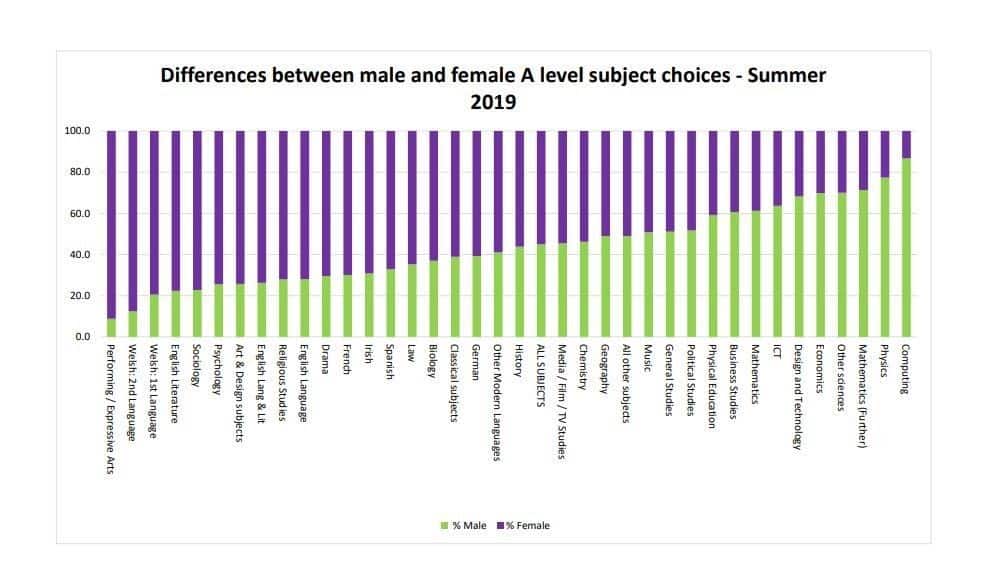Gender and Education

Have you ever thought about why outcomes are so different for girls and boys?
Welcome back, I hope that the summer has given you some time to refresh, recover and prepare for what lies ahead. It is a strange time and so I am focussing on psychology in the classroom, for this term. Hopefully that way I can cover lots of ideas and you can delve into whichever takes your fancy. So let’s think about this blog – for the next 6 weeks I will be considering how gender and learning interact.
The obvious place to start seems to be the end -what are the differences in outcomes between genders at GCSE and A level? Then work backwards – why those differences arise? So let’s dive in…
My teaching career started in mixed schools, I then worked in two all girls’ schools (one state, one private) and then moved to an all boys school with a mixed 6th form. I can’t count the number of times I have heard phrases like ‘well girls learn like this…’ or ‘we know we need to treat boys like this…’, I’ve even used them myself. Yet as a mother of 3 boys I don’t want teachers to assume anything about my boys – why shouldn’t they like Food tech or English, why can’t they play netball or have long hair? So why do we make these assumptions about how boys and girls learn and their preferences for subjects? It’s obvious look at the exams stats.
At A level – overall girls do better with a higher Average Point Score (APS), but interestingly boys achieve more of the top grades (girls achieving 3A*-A is 11.5% to boys’ 13.3%). Whilst maths is the most popular subject (27% of students do maths) 37% of boys do maths compared to only 19% of girls, and if you add in sciences then 51% of boys did at least one maths or science compared to 37% of girls. Girls are much more likely to take Languages, English, Psychology and History.
 Source: JCQ 2019
Source: JCQ 2019
What is the picture with GCSE where everyone has to take Science, Maths and English? Well in 2019 the gender gap was closing, with more girls getting top grades in maths and physics and boys in biology, and there was a rise in girls’ taking computing. Similarly, in English Literature and Language girls were still outperforming boys and this difference got bigger. But overall girls outperform boys in nearly every subject.
So to sum up – overall girls tend to do better in education than boys, boys tend to do better in the science subjects, these patterns are fairly consistent year on year.
I expect none of this surprises you. But have you really truly asked yourself why these differences exist? Is it really a fundamental biological difference or is it our expectations as teachers and parents? Just as we now see pink as a ‘girls’ colour and ‘blue’ for boys (a Victorian invention) do we see ‘Science’ for boys and ‘English’ for girls and in subtle and unconscious ways treat the genders differently in the classroom. Over the next 5 weeks I am going to explore how our unconscious biases shape our behaviour towards the different genders in the classroom and how that affects the outcomes that we see.








Responses